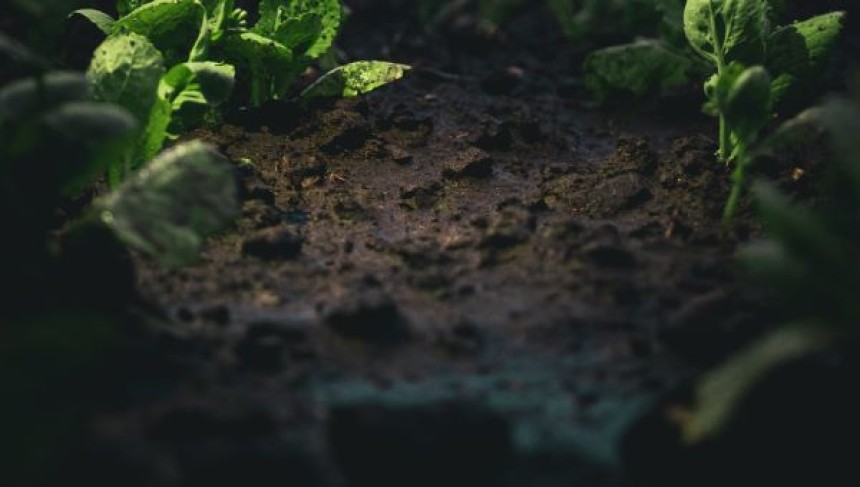
What Is a Sticking Agent? Understanding Its Role in Agriculture
Agriculture has undergone substantial change by developing new technologies and chemicals intended to maximize crop yields. Sticking agents are one of these that are now essential for improving the effectiveness of agricultural treatments. Thanks to these compounds, herbicides, insecticides, fungicides, and miticides adhere better to plant surfaces, guaranteeing that the chemicals used stay effective despite environmental difficulties. The desired impact of the sprayed solution may be diminished if an adequate sticking agent is not used since a large portion of it may be lost to evaporation, runoff, or wind drift. Optimizing agricultural operations requires an understanding of these agents' roles in contemporary farming and how they work.
The Science Behind Sticking Agents
Sticking agents, often called agricultural adjuvants, are specifically designed to improve the retention of chemical sprays on plant surfaces. They change the liquid solution's physical characteristics so that it spreads uniformly and can withstand weather conditions like wind and rain.
Several factors influence the retention of a pesticide or nutrient solution sprayed on crops:
- Surface Tension—The natural waxy covering on many plant surfaces repels water, causing droplets to roll off and bead up. Sticking agents improve adhesion by altering surface tension.
- Evaporation Resistance - Liquid solutions may evaporate at high temperatures before efficiently reaching plant tissues. Sticking agents aid in avoiding over-drying.
These agents reduce waste and enhance the effectiveness of pest and disease control in farming operations by improving spray efficiency.
Types of Sticking Agents Used in Agriculture
Sticking agents come in a variety of formulas to meet particular agricultural requirements. Some offer other advantages including penetration augmentation and UV protection, while others concentrate mainly on adherence.
Natural and Synthetic Sticking Agents
There are two types of sticking agents: synthetic and natural. Synthetic versions are chemically designed to withstand harsh weather conditions, while natural agents are frequently derived from plant-based substances like vegetable oils and gums.
Stickers vs. Spreaders vs. Penetrants
Adjuvants are not always just sticking agents. Some have other characteristics that affect how plants react to the spray.
- Stickers – Primarily designed to improve adhesion and prevent wash-off.
- Spreaders – Enhance the coverage of the spray across plant surfaces.
- Penetrants – Help the active ingredients infiltrate plant tissues for more profound action.
Many modern formulations combine these characteristics, providing multifunctional benefits for farmers.
How Sticking Agents Improve Pesticide and Nutrient Absorption
Sticking agents are essential to maximize the efficacy of agricultural treatments. They help ensure that active ingredients stay where they are needed for a long time, whether they are used with herbicides, insecticides, fungicides, or miticides.
An efficient NB-80 sticking agent can significantly improve adhesion when applying pest-control solutions. It prevents pesticides from washing off during irrigation or rains, enhancing crop protection and lessening chemical waste.
The advantages go beyond the use of insecticides. For instance, foliar nutrients must attach well to plant leaves to maximize nutrient uptake. Nutrients may slide off without an appropriate sticking agent, resulting in ineffective application and higher expenses.
Difficulties in Applying Agricultural Chemicals Without Sticking Agents
Farmers that do not include sticking agents in their spray operations frequently encounter some difficulties. Among the most prevalent problems are:
- Inconsistent Coverage – Without an effective agent, some parts of the plant may receive little to no chemical protection, leading to uneven treatment.
- Increased Chemical Drift – Wind can carry droplets away from target crops, reducing efficacy and potentially causing unintended environmental contamination.
These problems reduce the success of agricultural treatments and contribute to economic losses for farmers.
"The soil is the great connector of our lives, the source and destination of all." – Wendell Berry
Environmental and Economic Benefits of Using Sticking Agents
Using sticking agents in agriculture extends beyond efficiency and has significant environmental and economic implications.
Reducing Chemical Waste and Runoff
One of the main issues with agricultural spraying is the loss of chemicals through runoff. Excess fertilizers and pesticides that do not stick to plants may contaminate nearby water sources. Sticking agents help lower this risk by guaranteeing that chemicals stay where they are administered.
Lowering Input Costs
Farmers can use fewer insecticides, fungicides, herbicides, and miticides while maintaining the same protection if adherence improves. This prevents needless chemical exposure and lowers the cost of agricultural inputs.
Regulatory Considerations for Sticking Agents
Sticking agents provide many benefits, but their usage is controlled to protect the environment and public health. Governmental organizations supervise their approval procedure, guaranteeing that compositions fulfill safety and efficacy requirements.
Farmers are required to observe safe handling procedures and specified application rates. To ensure sustainable farming methods, regulatory organizations also assess the possible long-term consequences of these compounds on water quality and soil health.
How Farmers Choose the Right Sticking Agent
The choice of the best-sticking agent depends on several variables, such as the type of crop, the surrounding environment, and the chemicals being employed.
Key considerations include:
- Compatibility – Ensuring the agent works effectively with the chosen pesticide or fertilizer.
- Weather Resistance – Choosing an agent that performs well under local climatic conditions.
With various options available, farmers often consult agricultural experts or conduct field trials to determine the best product for their needs.
Future Innovations in Sticking Agents
New formulations of sticking agents are appearing as agricultural technology develops. Scientists are developing eco-friendly and biodegradable substitutes that reduce their adverse effects on the environment without sacrificing their efficacy.
Nanotechnology is also being investigated to improve the accuracy of nutrition and pesticide delivery, enabling more focused treatments. These developments seek to preserve productivity while enhancing modern farming's sustainability.
Frequently Asked Questions (FAQs)
1. Can sticking agents be used with all types of agricultural chemicals?
Yes, but compatibility varies based on the chemical formulation. Always check product labels and conduct small-scale trials before widespread application.
2. Can organic farming safely use sticking agents?
While synthetic versions might not satisfy organic certification requirements, specific natural sticking agents are permitted in organic farming. Farmers should check product labels to make sure they are organic.
3. How do weather conditions affect the performance of sticking agents?
Adhesives increase resilience to external elements like wind and rain. Extreme heat or humidity, however, may still reduce their efficacy and necessitate modifying the timing of sprays.
4. Are there any risks associated with using sticking agents?
When used according to guidelines, sticking agents pose minimal risks. However, improper application or overuse can lead to residues on crops and unintended environmental effects.
5. What is the difference between a surfactant and a sticking agent?
Although both alter spray properties, sticking agents increase adherence to plant surfaces, while surfactants mainly lower surface tension to promote spreading. Certain items combine the two purposes.
Sticking agents' changing function in agriculture highlights their importance to contemporary farming methods. As technology develops and sustainability becomes more important, these agents will remain essential for maximizing the use of agricultural chemicals.
This Article is written to accelerate businesses. JOIN The Community Now! Fuel your business success with Grow Media Digital! 🚀 Tailoring expert strategies, from SEO to social media, ensure a perfect fit for your needs. With an innovative approach, they stay ahead of trends, guaranteeing measurable growth. Visit growmedia.digital to bring your business to new heights.





